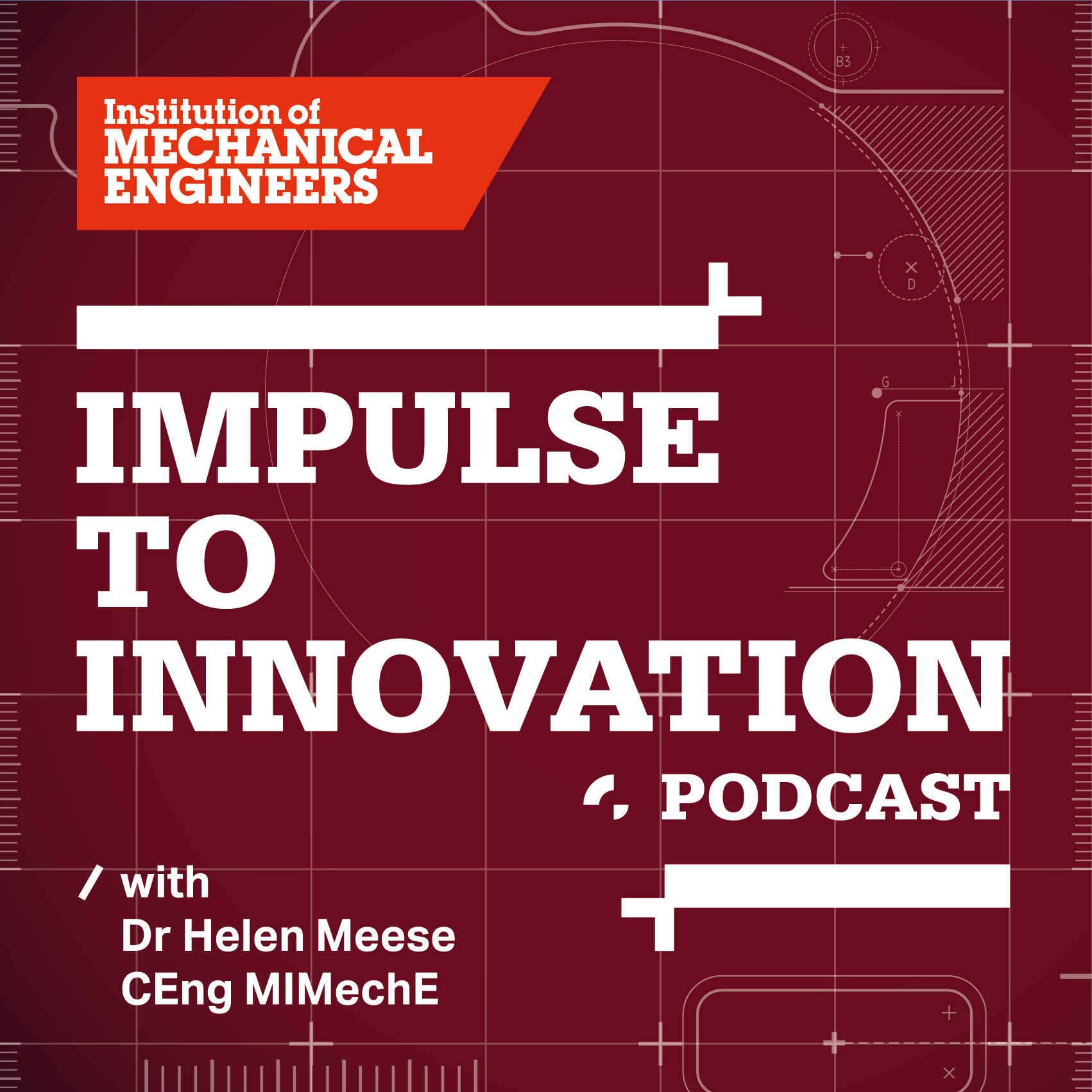Episodes
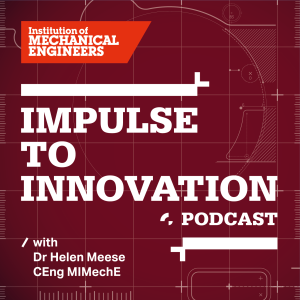
Monday Feb 05, 2024
Monday Feb 05, 2024
The ever-present challenges of climate change, over-reliance on limited resources and a global demand for new technologies, is pushing the engineering community to find more innovative ways to design and manufacture products.
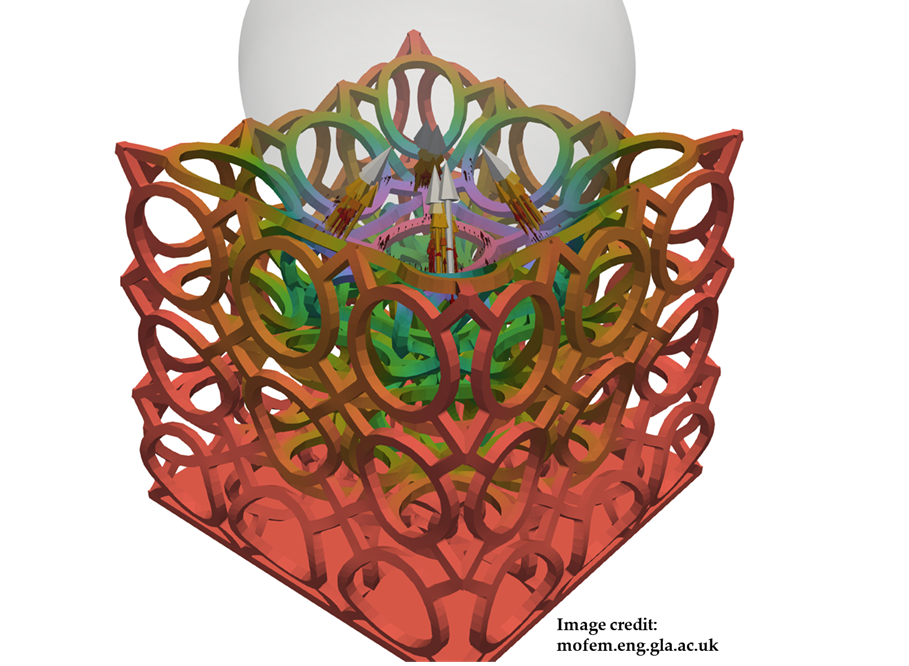
Image Source: UK Metamaterials Network https://metamaterials.network/what-are-metamaterials/
Engineers and scientists working in the materials science sector have been exploring the properties of everyday materials such as metals, plastics and glass for centuries, to identify new properties and behaviours which might enable us to conserve the world’s finite resources.
In this episode Helen talks with three leading experts in the field of Metamaterials - engineered materials that have unique 3-dimensional structures, which cause them to behave in ways not found in nature.

Image Source:Exeter University Centre for Metamaterial Research and Innovation https://www.exeter.ac.uk/research/groups/physics/emag/themes/mmto/
Their precise shape, geometry, size, orientation and arrangement gives them ‘smart properties’ capable of unconventional shape changes and the ability to manipulate electromagnetic waves: achieving benefits that go beyond what is possible with conventional materials.
With incredible versatility and innate sustainability built directly into their structures, metamaterials have the potential to be used in the electronics, communications, healthcare, aerospace, automotive, and energy sectors.
This episodes guests are:
Dr Claire Dancer - associate professor & reader in Materials Science & metallurgy at WMG – University of Warwick and vice chair of the Metamaterials Network, who is working on ceramic metamaterials and manufacture processes.
Dr Calum Williams – lecturer in Physics at the University of Exeter who is focusing on photonic and optical metamaterials and their surface properties.
Dr Tom Allen - Fellow of the IMechE and senior lecturer in sports technology at the Manchester metropolitan university who is looking at how mechanical metamaterials can change athlete’s performance.
Useful Links
https://metamaterials.network/
https://www.exeter.ac.uk/research/metamaterials/
We would love to hear your thoughts and comments on this episode. If you would like to get in touch, email us at podcast@imeche.org
You can find more information about the work of the IMechE at www.imeche.org

Thursday Dec 14, 2023
Thursday Dec 14, 2023
The implementation of net zero initiatives across the globe is at the forefront of most governments and leadership authorities' strategic policies, none-more-so than China and India; two of the world’s biggest carbon emitters.

South Asia has witnessed a growth in energy demand over the past two decades, increasing by over 50% since 2000. Rising demand has been driven by factors such as an increasing population and growth in the manufacturing sector. In Bangladesh, Bhutan, India, Nepal and Sri Lanka in particular, electricity demand has grown on average by more than 5% annually over the past two decades and is expected to more than double by 2050.
However, approximately two-thirds of the energy use in South Asia is imported and the region is marred with electricity shortages, erratic electricity supply, underinvestment in renewables, and energy access challenges.
Growing populations, burgeoning energy demand, frequent extreme climate events like the recent record-breaking heatwaves in India and Pakistan, and geopolitical shocks like the Ukraine war are all likely to exacerbate these difficulties.

According to the International Energy Agency, rapid GDP growth and electrification of energy services caused China’s electricity demand to grow by 10% in 2021 to a massive 157.65 exajoules. That is faster than its economic growth at 8.4%.
Yet despite the implementation of net zero policies, such as its plan to be net zero by 2060, China is still responsible for around a 1/3 of global carbon dioxide emissions, remaining heavily reliant on coal as an energy source and for manufacturing.

The Middle East too is powered almost exclusively on gas and oil, 77% of power came from gas in 2021, and 18% from oil, and despite its perpetual sunshine it stands out as one of the only regions in the world where solar and wind have yet to establish themselves. Saudi Arabia has published big plans for renewables, but there has been limited demonstrable progress towards those so far. Jordan is the exception, generating 23% of its electricity from wind and solar in 2021.
According to the African Development Bank Group, Africa has an almost unlimited potential of solar capacity (10 TW), abundant hydro (350 GW), wind (110 GW), and geothermal energy sources (15 GW). Yet the investment gap in African renewables is still overwhelming, and fossil fuel companies continue to invest heavily in new fossil fuel exploitation in 48 out of 55 African countries.
With the likes of Sichuan hit by record-breaking high temperatures, unseen in 60 years and water in the region’s rivers dropping to historical lows, what can the engineering community do to effect change across these vast tracts of land?

Helen spoke with three of the Institution’s leading international engineers working in the energy sector, to get their take on energy use and impact in India, China, Africa and the Middle East.
Vijay Raman is a management consultant with over 50 years experience in logistics, transport infrastructure and energy. He has worked predominantly in India and South Asia but his career has taken him all over the world. He is a fellow of the institution, past trustee and international vice president.
Chris Cheung Chief Operating Officer of energy company CLP Holdings Limited in Hong Kong. Chris is responsible for a portfolio of diversified assets including coal, hydro, solar and wind generation in China.
He has over 30 years of experience in the power industry covering maintenance, plant enhancement, technical services and project engineering. Chris is a fellow of the institution and has held international strategy board positions including Hong Kong Branch chair and North East Asia regional chair.
Hassan Ansari is an accomplished business executive with over 37-years experience; delivering engineering projects in Nigeria, Egypt, Saudi Arabia China and Europe.
He is a fellow on the institution, an active member of the Pakistan regional board and Immediate past Chair of the Middle East and Africa region.
Useful Links
We would love to hear your thoughts and comments on this episode. If you would like to get in touch, email us at podcast@imeche.org
You can find more information about the work of the IMechE at www.imeche.org

Monday Nov 06, 2023
Monday Nov 06, 2023
“Adapting industries to, and preparing them for, a warmer world will be essential for the future successful functioning of societies of all nations.” Said Dr Tim Fox, co author of the IMechE’s latest report on Climate adaption.
The report entitled 'Adapting Industry to Withstand Rising Temperatures and Future Heatwaves' was published in April 2023 and produced in conjunction with the IMechE’s Process Division and a plethora of leading climate change and sustainability experts from across the globe.

While many engineers work on technologies that will help mitigate the climate crisis itself, Authors Dr Fox and IMechE Policy advisor Dr Laura Kent believe that more should be done to prepare industry for future climate change-induced, heat-related impacts. Their work demonstrates how increases in ambient temperatures and more frequent, severe, prolonged heatwaves could have a devastating impact on industry and its workforce.
They outline the urgent need for engineering-related standards and design codes to be based on expectations of future climate rather than past climate, adaptation solutions to be sustainable and result in net-zero greenhouse gas emissions, and strategies to be developed to make workplaces and work practices comfortable and safe.
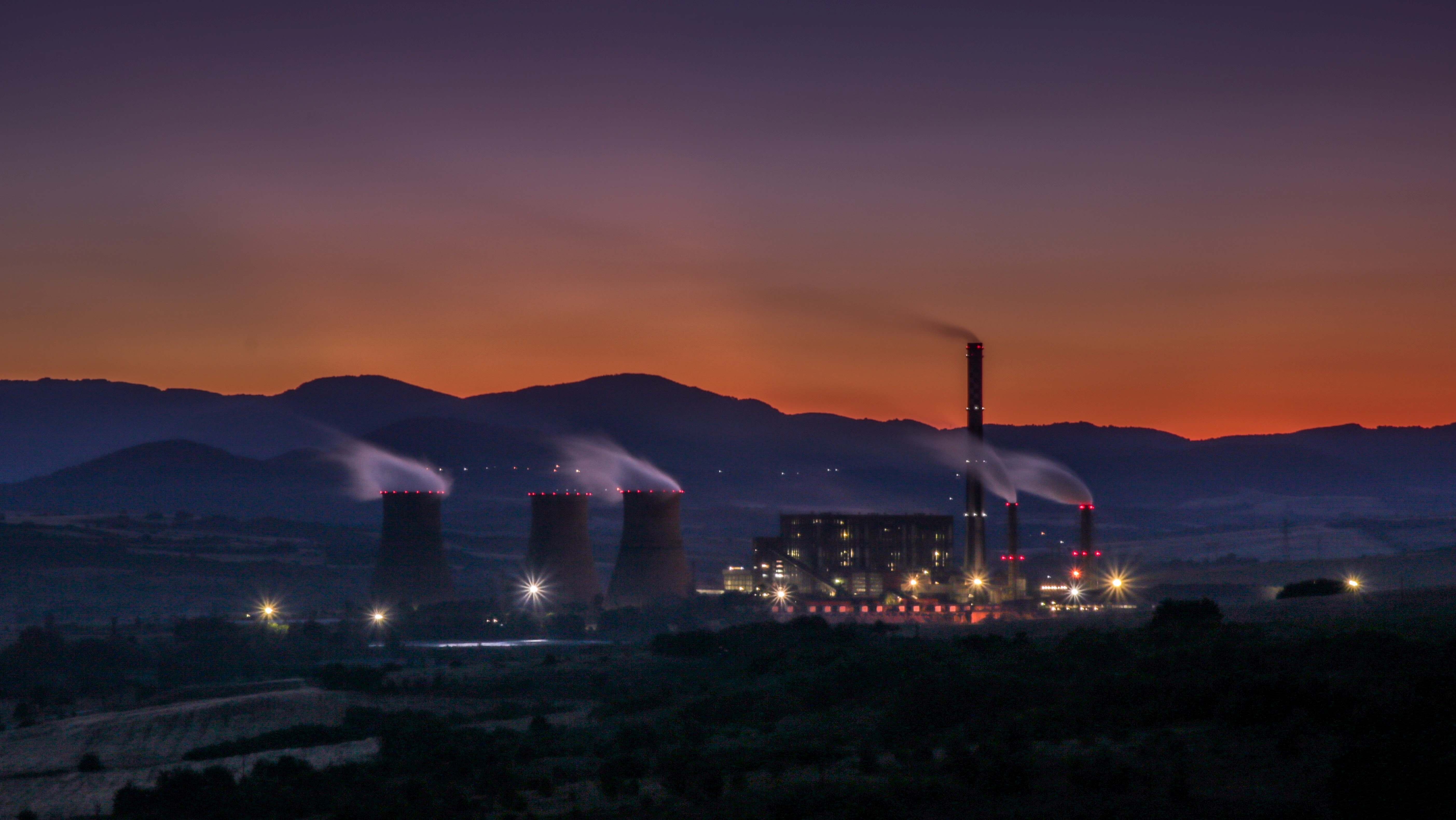
Helen spoke with Tim and Laura about the climate adaptation report and discussed with them their reasons for bringing together such an international team of experts to advise on its content, what adaption technologies engineers are developing and how, as a leading voice in policy, the IMechE could galvanising political change.
Tim Fox is an internationally recognised expert in climate change mitigation and adaptation with specialist knowledge of clean energy, sustainable cooling, process engineering based industries and sustainable food system. He is a Chartered Engineer and Fellow of the IMechE andthe immediate past Chair of the Process Industries Division. Tim represents the IMechE on the UK Infrastructure Operators Adaptation Forum and is a member of the Adaptation to Climate Change Group of BSI Committee.
Dr Laura Kent joined the Imeche in June 2022 as a Public Affairs and Policy Advisor. Prior to joining the IMechE, Laura held roles at the Government Office for Science and Department for Business, Energy and Industrial Strategy working on policies and advice to support innovation in the UK. Before starting a career in policy, Laura was a scientist at the National Physical Laboratory.

Useful Links
Adapting Industry to Withstand Rising Temperatures and Future Heatwaves Article
Adapting Industry to Withstand Rising Temperatures and Future Heatwaves Policy Report
'The urgent need for climate adaptation solutions' article
PE Magazine Report on Sustainability

Monday Oct 09, 2023
Monday Oct 09, 2023
During the first week of September the Institution hosted Volunteer Week. A back-to-back week of committee meetings and networking, enabling members from all over the world to take part in a wide range of activities.
As a Chair of a Division of the IMechE, this was a great opportunity for Helen to meet up with not just her division members but members from across the Institution. Helen personally always find it a fulfilling and enjoyable time, meeting new members, seeing a few old faces in some cases, ones she had not seen since covid.
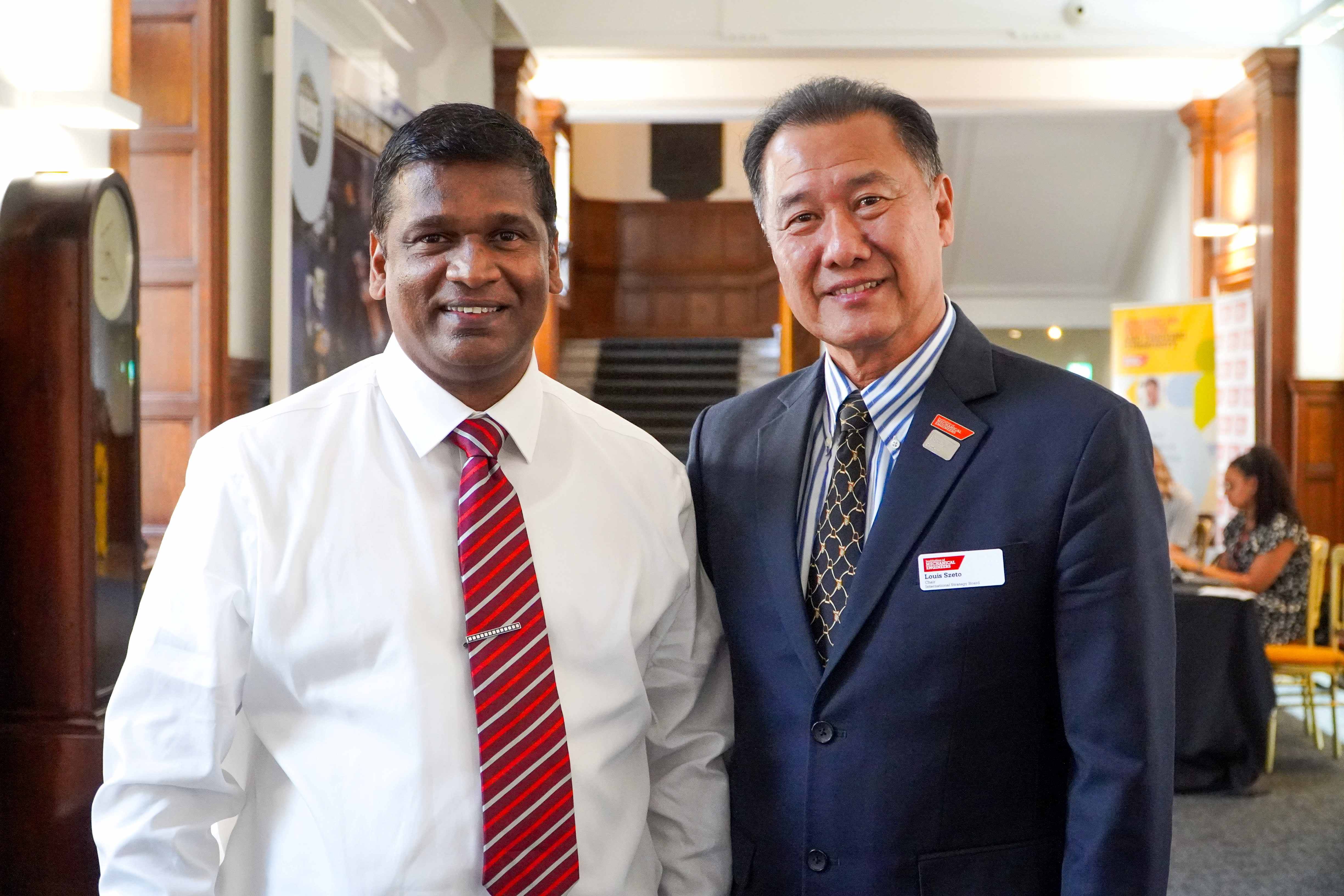
Catching up with old friends - Volunteer Week enables international members to share their experiences
Helen decided, as she was going to be there for 2 days, she would take the opportunity to record some interviews for the podcast. Helen spoke with members about why they were there, what they hoped to gain from attending sessions and what got them excited about being a volunteer.
On day 1 of her visit she attended Council. As a divisional chair Helen has an ex-eficcio seat on Council which enables her to represent the over 3000 members who identify as Biomedical Engineers in the Institution. In the last few years, the structure of Council has changed significaly, with a much more streamlined membership.
Council in its simplest form acts as both a sounding board and mirror for the trustees, reflecting the views and ideas of members, to help the Trustee Board make informed decisions on behalf of the whole membership. Its work however, is much more nuanced than that, with small task and finish and sub-groups being formed to ensure every aspect of a topic is analysed and agreed.
To some of you listening that might sound like your worst nightmare; sitting in lots of meetings, it's something we do at work all the time. Of course, it can be laborious at times, but surprisingly it is an excellent forum in which to test your negotiating and management skills, as well as listening abilities, and learning new ways to view opinon, ensuring that everyone has a voice and that a well-reasoned outcome can be agreed upon.
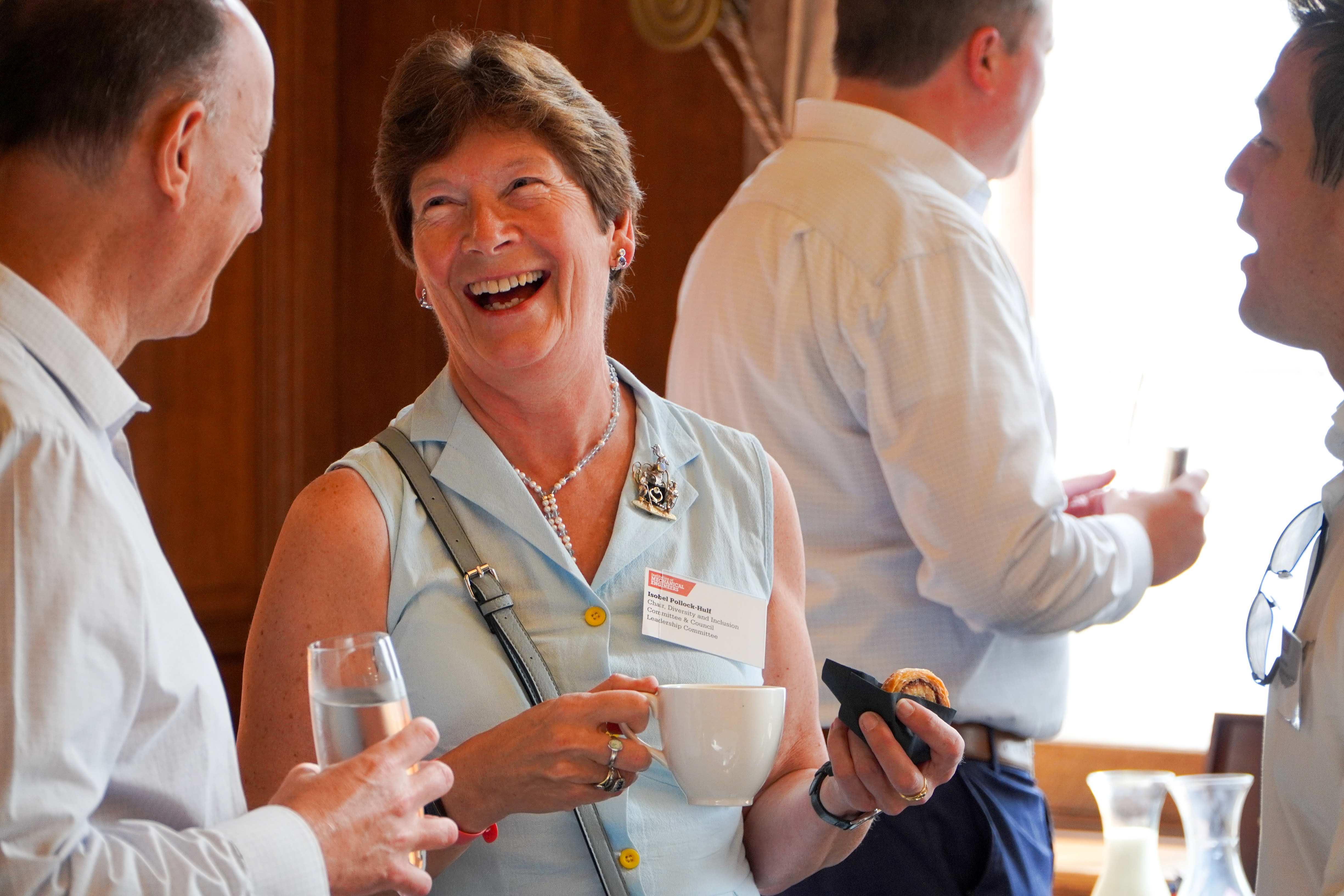
Taking a break - Council Members chat over coffee
Despite the hectic Council agenda, Helen was able to sit down with Council Chair Martin Robinson to ask him about the structure and purpose of Councill and how Council’s decisions flow down to the grassroots members. They also discussed the impact of the newly released strategy and why members should consider getting actively involved in the operational and governance committees at HQ.
Helen spoke with Emil Tschepp, Chair of the Young Members Board. Emil has been actively involved in young engineer’s activities for many years, with various roles on the YMB committee, taking up the position of Chair of the Board just a few months ago. When Helen caught up with him, he was just coming out of his first Council session. She asked Emil, what was the value of having young member representation on Council and what he hoped to achieve as YMB Chair in the coming years.
Sylvain Jamais has been an active volunteer for many years, both at regional level, being Chair of the BmED Cambridge centre and at board level as a Trustee, Vice-Chair of Council and CLC and several strategy sub-groups. During a quick tea break, Helen asked Sylvain what being on Council meant to him and what impact the new strategy would have on the future of the IMechE.
With a short overnight rest, Helen headed back to HQ for Technical Strategy Board. The TSB is one of seven operational boards. Its role is to represent members across their industrial sectors and technical specialisms, which are divided into eighteen divisional boards and groups.
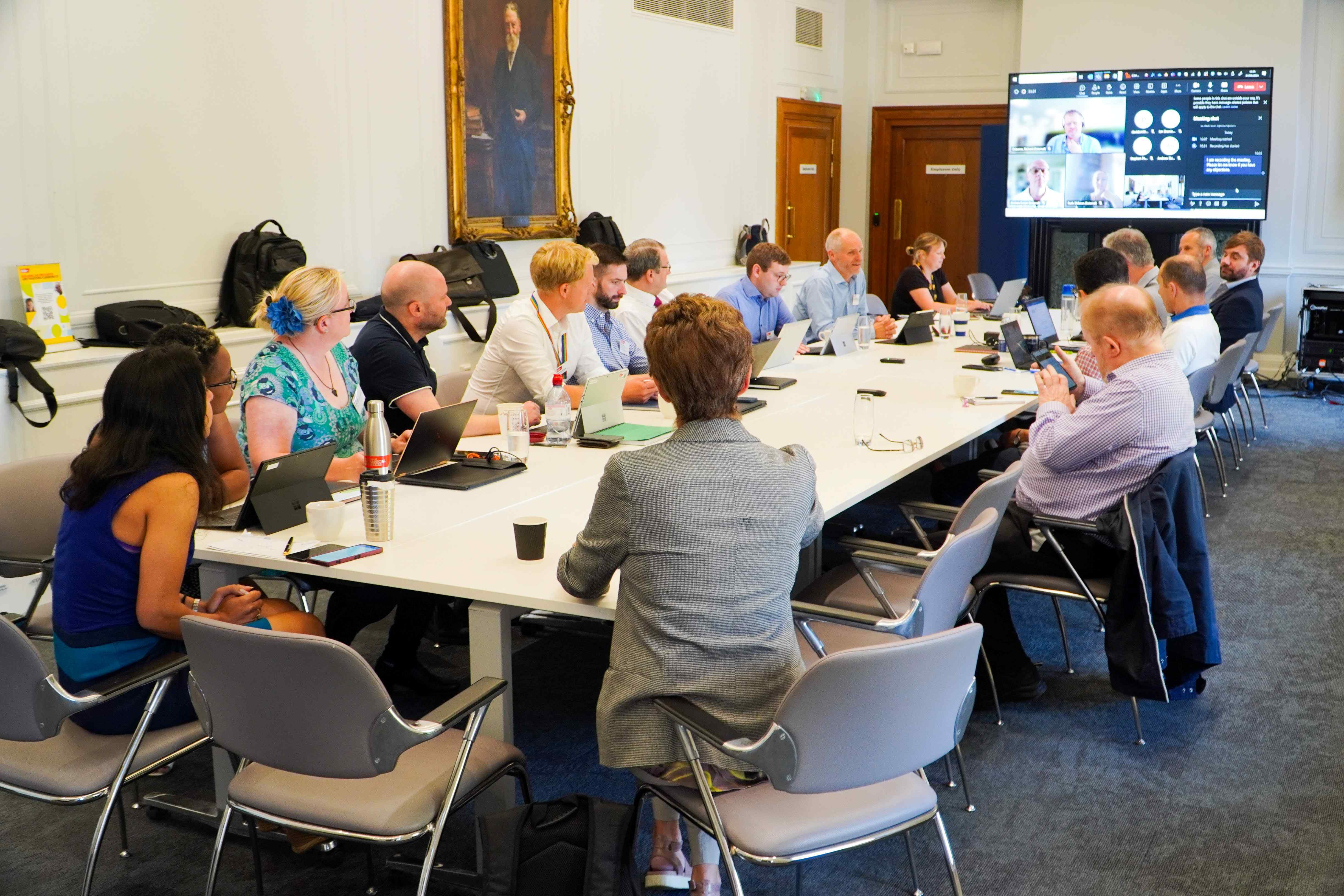
Inclusive Discussion - IMechE IT enables members to dial in and be part of the conversations
TSB's purpose is to develop and support the engineering and technical activities across the Ds and Gs as well as advise the Trustee Board on technical issues facing industry and coordinate strategic development by producing reports and advice to Government authorities through the IMechE’s policy team.
Earlier in the year Helen spoke with the then Chair of TSB Paul Jones about the work TSB had been doing in the development of the Instituion’s strategy document. In June, Paul finished his tenure and James Collinson, past-chair of the railway division, took up the post.
Just before they went into the TSB meeting, Helen caught up with James to ask him why he felt driven to volunteer on the Technical Boards and how the members of TSB engage with the wider membership to ensure they have a voice within the Institution.
Useful Links
If this episode has got you keen to find out more about volunteering within the Institution then check out our web page www.imeche.org/get-involved
You can also find out more about the structure, operation and governance of the Institution at www.imeche.org/about-us
If you would like to speak to a member of staff or ask a question about volunteering then email the Member Engagement Team at membernetworks@imeche.org
We would love to hear your thoughts and comments on this episode. If you would like to get in touch, email us at podcast@imeche.org
You can find more information about the work of the IMechE at www.imeche.org
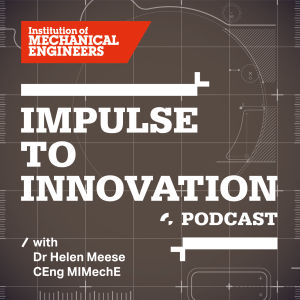
Tuesday Aug 08, 2023
Season 4 Live Episode - Formula Student 2023
Tuesday Aug 08, 2023
Tuesday Aug 08, 2023
Impulse to Innovation was back at Formula Student this year to celebrate the competition's 25th Anniversary. The episode went out live on the 20th July and this podcast is an edited version of that live show.
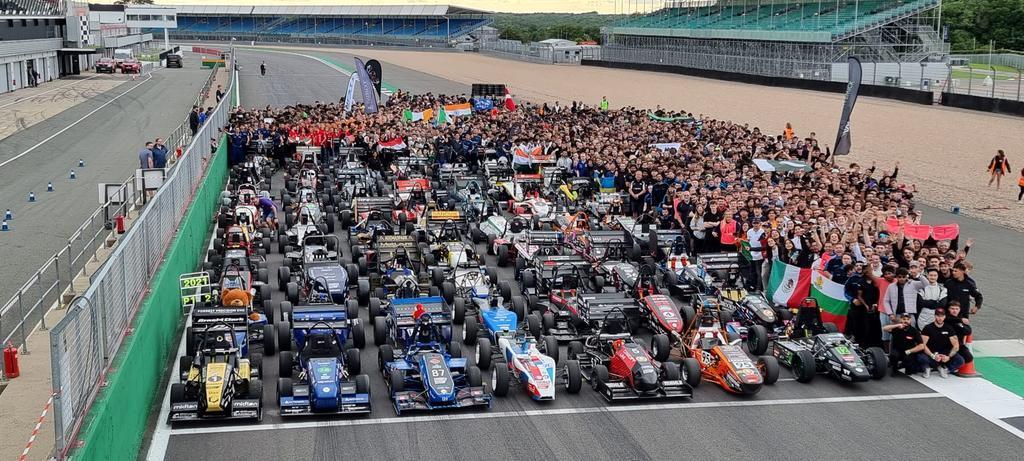
It is great to be back in the race control building overlooking world-famous Silverstone Circuit, home of the British Grand Prix. From our studio we could see the National Pits straight and out across to the Silverstone UTC.
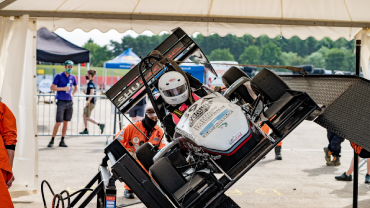
And what an amazing 25 years its been for FS, with over 45,000 students having taken part in the event since its inception. And tens of thousands of hours of design, prototyping, building, testing and competing. Not to mention the time and effort put in by the judges, who are all volunteers, and the staff at IMechE who put on this incredible event each year with new and exciting challenges for the teams.

Helen was joined by a plethora of guests including competitors, judges, FS staff and sponsors and a few special guests along the way. We discussed the legecy of the competition and what potnetial technical challenges the teams might face in the future.

Giles Hartill - 138th President of the IMechE
Ella Barrington - Senior Business Plan Presentation Judge & FS 2008 Alumni
Elliot Hemes - Managing Director IPG-Automotive UK & FS Sponsor
Naomi Rolfe - Senior Projects Executive of Competitions IMechE
Andrew Deakin - Chairman of Formula Student
Lucas & Callum - University of Glasgow Racing & 2022 Overall Winners
Dan Jones - FS Chief Judge, Simulation Racing Series
Sam Reinsel - Education Technical Lead for Student Competitions, Mathworks
Christian Dix - Satellite Communication Systems Engineer, Babcock International & FS 2017/20 Alumni
Gilles Eggenspieler - Worldwide Sales Academic Director, Ansys
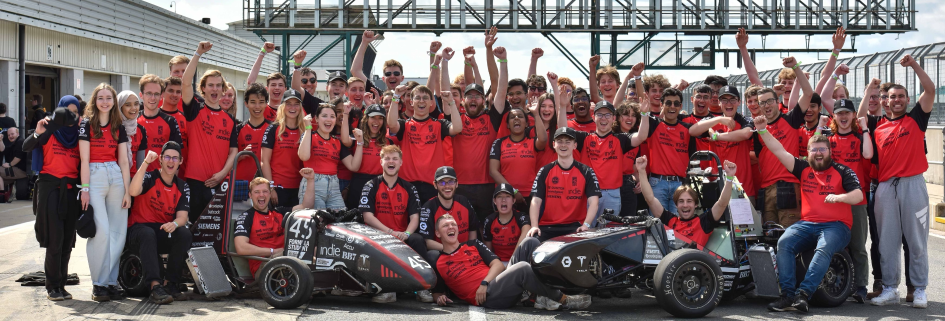
Useful Links
https://www.imeche.org/events/formula-student
https://www.youtube.com/@fsimeche
We would love to hear your thoughts and comments on this episode. If you would like to get in touch, email us at podcast@imeche.org
You can find more information about the work of the IMechE at www.imeche.org

Wednesday Jun 21, 2023
Season 4 Episode 5: Levelling Up - What to Expect from the Introduction of T-Levels
Wednesday Jun 21, 2023
Wednesday Jun 21, 2023
The T-level was initially mooted back in 2017 by the British government as a new, unified technical qualification which would replace the BTEC and simplify vocational education routes.
After several years of development, The Department for Education (DfE) launched the t-level in 2020 with the aim of enabling students to directly enter employment on completion of a programme in further education or Sixth Form college.
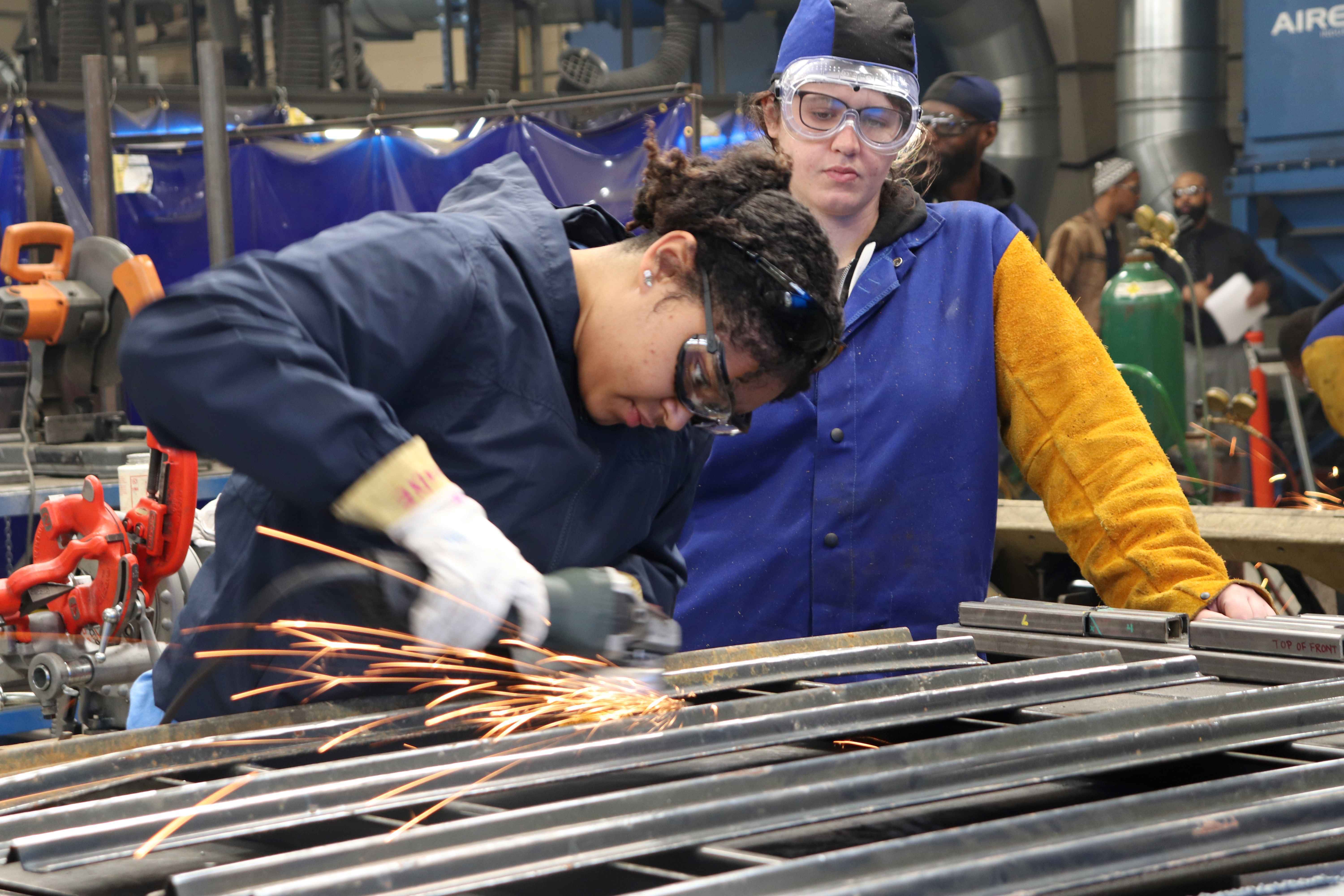
The unique aspect of the T-levels is that the courses have been developed in collaboration with employers and education providers so that the content meets the needs of industry and prepares students for entry into skilled employment, an apprenticeship or related technical study through further or higher education.
The T-level is a 2-year course which can be taken after GCSEs and is broadly equivalent in size to 3 A Levels. It offers students practical and knowledge-based learning and on-the-job experience through an industry placement of approximately 45 days.
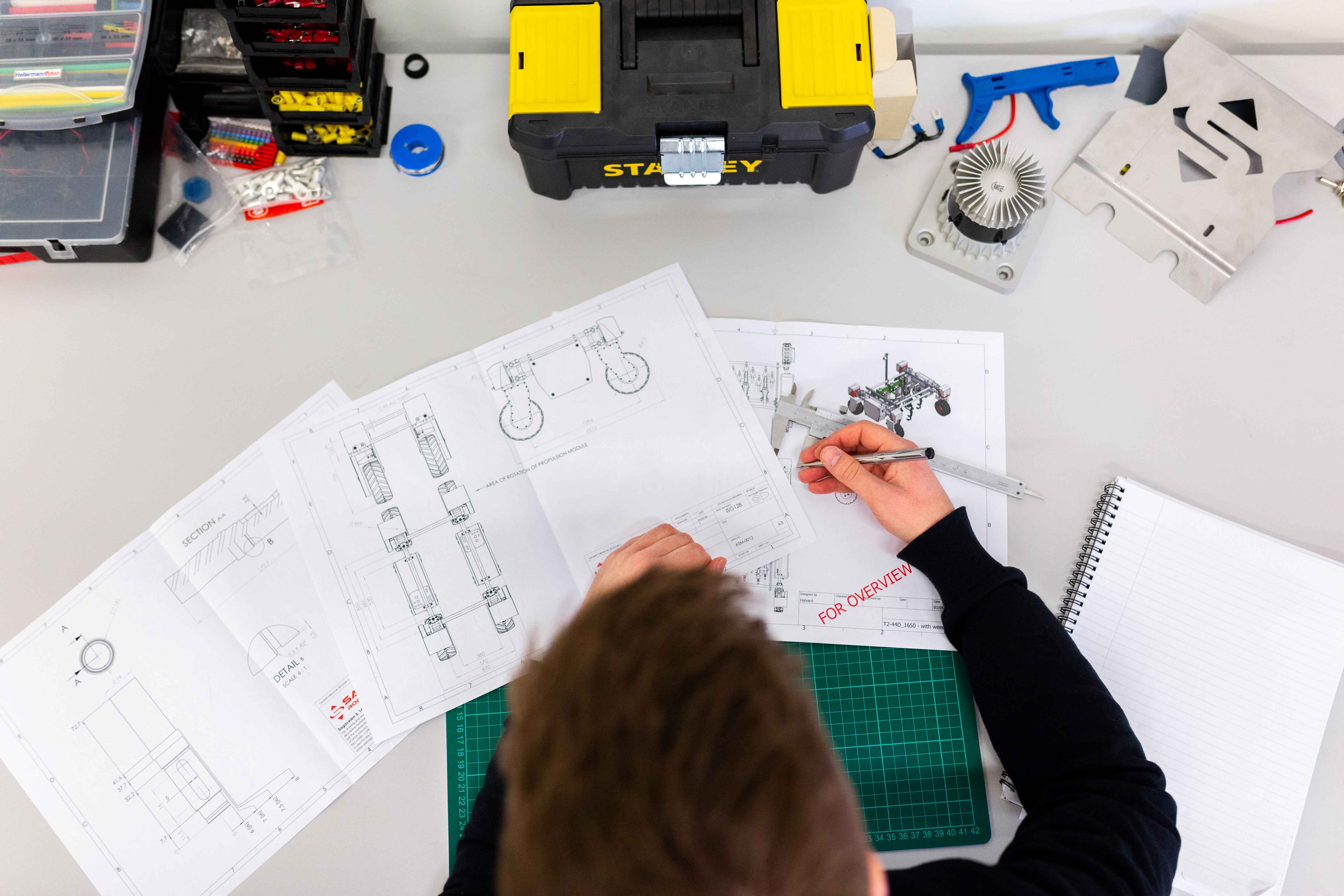
The first 16 have now been launched and all 24 T-levels will be available by 2024. Under the Engineering and Manufacturing T-level there is a choice of 3 courses:
- Design and Development for Engineering and Manufacturing
- Maintenance, Installation and Repair for Engineering and Manufacturing
- Engineering, Manufacturing, Processing and Control
To find out more about what this new vocational training programme would mean for the engineering industry Helen spoke with chartered engineers Lydia Amarquaye, professional development and education policy adviser for the IMechE and Andrew Livesey, consultant, further education lecturer, and author of T-Level Engineering - Technology, Manufacture and Maintenance

Lydia works with key stakeholders outside the IMechE to identify gaps in the education landscape which could help address workforce challenges and equip engineers with the right skills for a successful career. She also works with the Education and Skills strategy Board to develop the Institution’s strategic direction in education.
Andrew is an experienced company director as well as having authored several engineering textbooks. He is passionate about stem education and lectures at Ashford college in Kent. In 2018 his was part of the employer-led panel set up by the government to develop the T-levels in engineering.
In the first half of this episode Helen spoke with Lydia about how the IMechE was working with industry to ensure they understood the value of T-levels. In the second half Andrew talks to Helen about the importance of creating a flexible vocational qualification in engineering for young people and what he hoped the T-level would bring to the workplace.
Useful Links:
What Students need to know about T-levels
We would love to hear your thoughts and comments on this episode. If you would like to get in touch, email us at podcast@imeche.org
You can find more information about the work of the IMechE at www.imeche.org
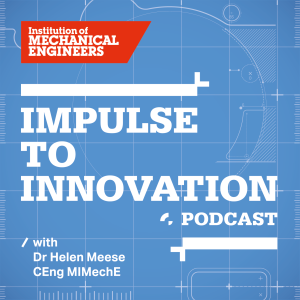
Thursday May 18, 2023
Thursday May 18, 2023
Leading and managing people, projects, or teams, requires more than a high degree of technical knowledge. Experience and education provide the foundation for success in an engineering manager's role, but it also requires a great deal of foresight and strategic thinking and just like any skill, becoming an effective manager and leader takes time and effort.
With businesses emerging from COVID-19 to a new and rapidly changing professional landscape, it is more critical than ever that companies take a proactive approach in developing and supporting engineering leaders of the future. Remote and hybrid working practices are now routine for many businesses and employees, and organisations can no longer rely on young engineers picking up communication and teamwork skills ‘by osmosis’ in the office environment.
The IMechE’s Essential Management Skills conference has been running for over 20 years and offers three days of workshops, networking, and site visits to equip early-career professionals with the knowledge they need to make the step up in their careers. Helen had the opportunity to attend this year's conference in April, to find out more about the value of leadership training, some 20-odd years since she last went to it.
Before she arrived Helen spoke with Dr Vasileios Samaras, a senior lecturer in Mechanical Engineering at the University of Swansea, and a fellow of the IMechE. Vasileios teaches the principles and application of leadership and management to undergraduates and having spent many years in industry before returning to academia, is keen to ensure young engineers are well prepared for the challenges that leadership brings.
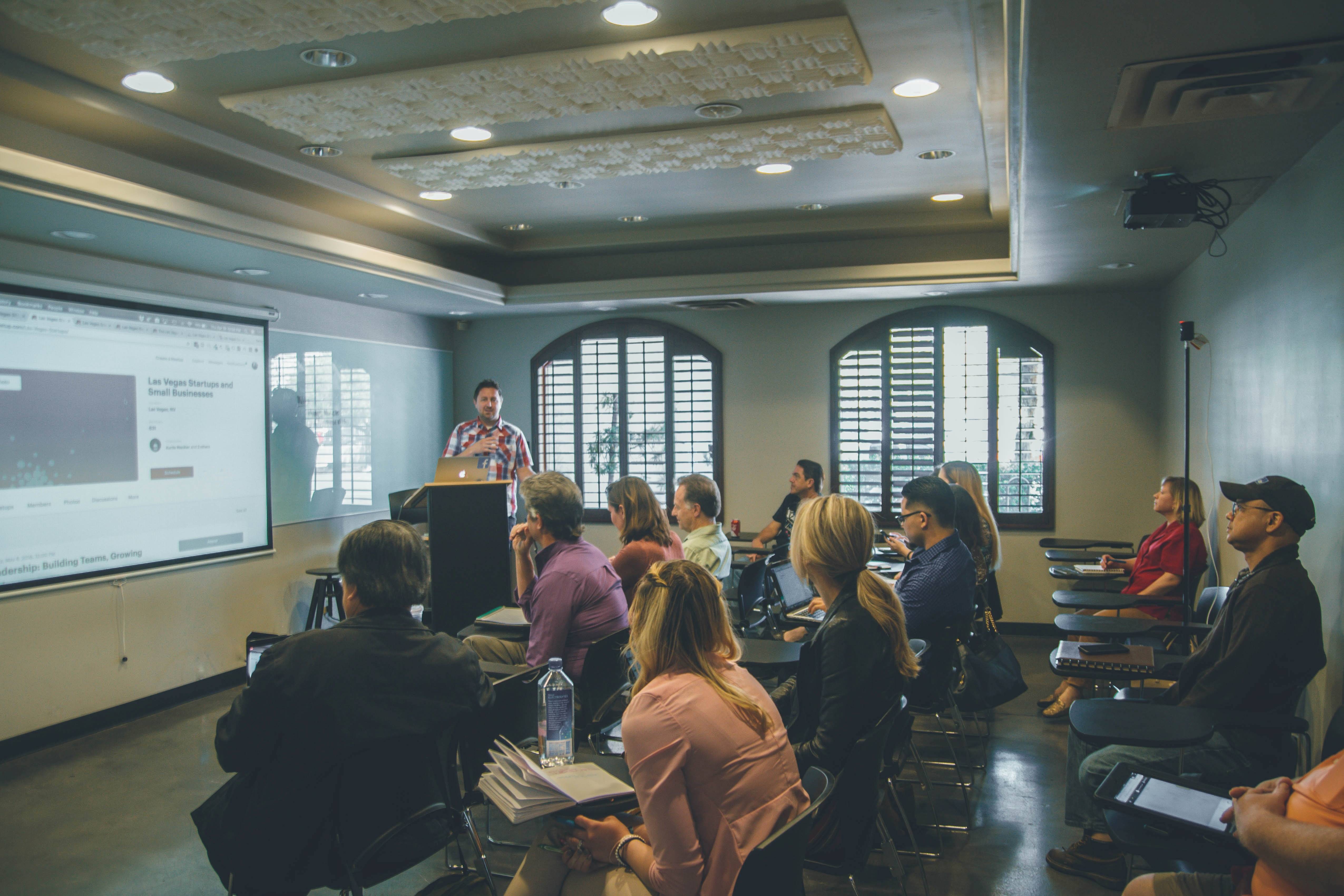
Stephen Brown is the chair of the EMS organising committee and got involved having previously attended the conference as a delegate. He found the conference to be extremely insightful and feels that all early careers and recent graduates should take the opportunity to attend.
Emma Wilson is one of the delegates attending the conference from Howden based in Scotland. Helen asked Emma why having the opportunity to learn about leadership early in her career, was so important, and what she hoped to take away with her from the experience.
Maira Bana is Co-Chair of the IMechE’s Construction and Building Services Division and an ambassador for She Can Engineer. She also attended EMS back in 2018. Poppy Harrison is a young engineer; D&I officer for the Greater London region and one of the organising committee members for the EMS 2023/24 conference. Helen spoke to both of them about the conference itself, why it is important from a D&I perspective and how leadership in industry has changed over the last 10 years.

Paul Taylor has been providing training in the IMechE for many years and feels leadership and management skills are a fundamental part of what it means to be an engineer. Helen asked Paul to share his thoughts from a trainer’s point of view.
Jack is a young engineer working at Sellafield and is looking to move into his first leadership role. Helen asked him why his company felt leadership and management skills were valuable to them.
Robin Safas is Programme Development Lead for the IMechE. It’s his job to ensure events such as the EMS run smoothly by supporting the organising committees in developing and planning their events. Robin sees this conference as an investment in the careers of future engineers and a way for companies to empower their workforce.
Robyn Stark, is also a an engineer from Howden. As a recent graduate she felt that she was a long way from being a leader in her career, but she recognised that the skills she was learning would be very useful for building relationships with her colleagues in the future.
David Edmondson, is one of the guest speakers at the conference who has had a varied career in both the military and industry and feel passionate about leadership training and how engineers can learn from best practice in the armed forces.
Useful Links:
IMechE Training - Early Career Development Programme
Details of the Essential Management Skills 2023
PE Magazine Report on Sustainability
We would love to hear your thoughts and comments on this episode. If you would like to get in touch, email us at podcast@imeche.org
You can find more information about the work of the IMechE at www.imeche.org
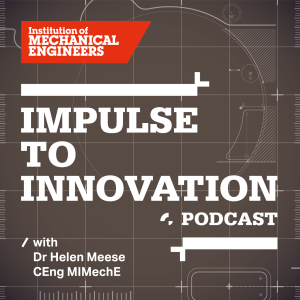
Wednesday Apr 26, 2023
Wednesday Apr 26, 2023
The idea of 'a machine that thinks' dates back to ancient Greece times, but since the advent of electronic computing and the overwhelming amount of data generated by the human race in the last 50 years, the realisation of intelligent machines that can think like humans has been almost tangible.
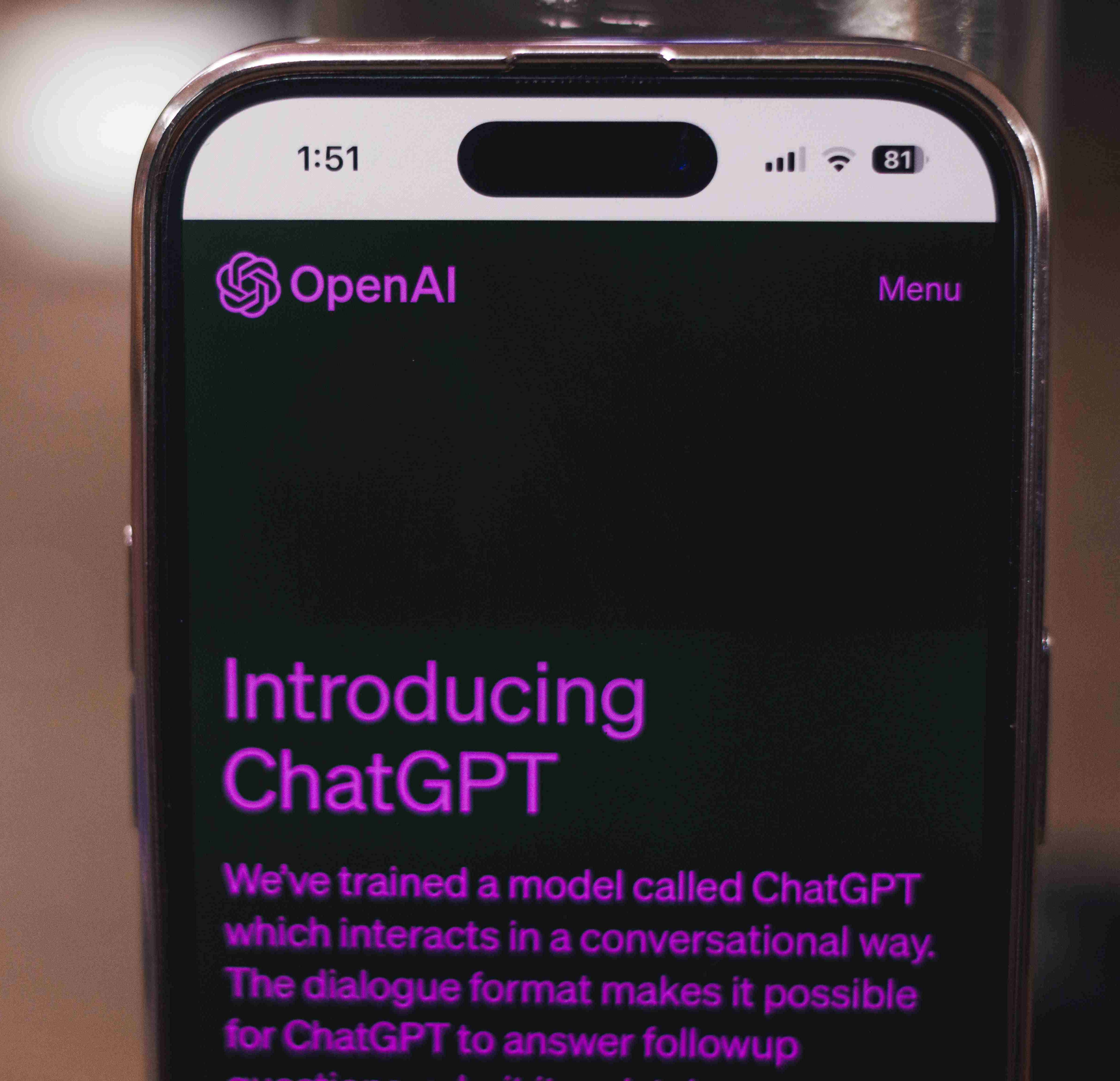
In 1950 Alan Turing published his seminal work Computing Machinery and Intelligence. In the paper, Turing proposed to answer the question "Can machines think?" and introduced the Turing Test to determine if a computer could demonstrate the same intelligence as a human.
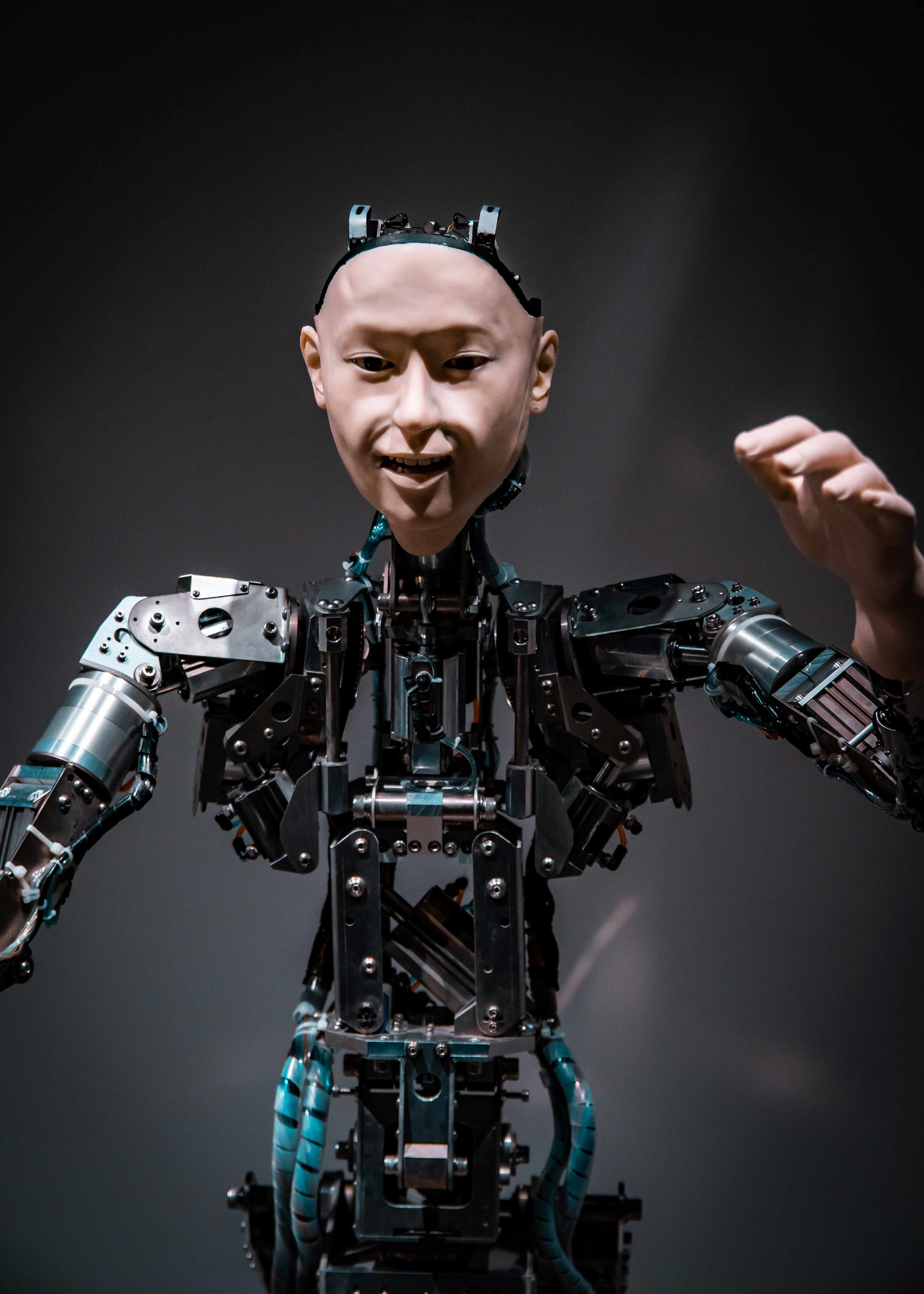
In 1956 John McCarthy coined the term 'artificial intelligence' at the first-ever AI conference at Dartmouth College saying Artificial intelligence, " …is the science and engineering of making intelligent machines, especially intelligent computer programs. It is related to the similar task of using computers to understand human intelligence, but AI does not have to confine itself to methods that are biologically observable."

Today, there is a great deal of hype surrounding AI systems and intelligent machine development, which is of course to be expected of any new emerging technology. But what exactly is AI and what does it mean for the world of mechanical engineering?
In this I2I podcast special, Helen speaks with Neil Lawrence and Alan King about what AI and machine learning is all about, what their uses will be, and how engineers will benefit from using these systems in their working environments.
Professor Neil Lawrence is the inaugural DeepMind Professor of Machine Learning at the University of Cambridge, Senior AI Fellow at The Alan Turing Institute, and Visiting Professor of Machine Learning, University of Sheffield.
He received his bachelor's degree in Mechanical Engineering from the University of Southampton in 1994 and spent his early career as a field engineer on oil rigs in the North Sea. He has been working on machine learning models for over 20 years and recently returned to academia after three years as Director of Machine Learning at Amazon where he worked on deploying machine learning solutions for Prime Air, Alexa and the Amazon supply chain.
Alan King is Head of Global Membership Strategy at the Institution of Mechanical Engineers. He joined IMechE as a Business Development Executive in 2004 with a background in both engineering and business. His father, both an engineer and joint owner of an engineering firm, introduced Alan to engineering at an early age and he then combined his fascination for the subject with an interest in business at university, studying for a Master's in International Business.
As the Head of Global Membership Strategy, Alan supports the development of IMechE's comprehensive 5-year strategy. Collaborating with organisations worldwide, his team delivers exceptional support to IMechE members while crafting engaging membership marketing content for pivotal campaigns throughout the year.
Alan is now focusing his attention on how Artificial Intelligence could enhance both member services and support staff in their everyday tasks within the IMechE. He also recently wrote a fascinating article for Institution News on the practical applications of AI and Machine Learning in the engineering sector.
Useful Links:
Challenges in Deploying Machine Learning - Case Studies
How AI is Already Changing Engineering and the Role of the Engineer
Understanding Artificial Intelligence
PE Magazine report on Sustainability
We would love to hear your thoughts and comments on this episode. If you would like to get in touch, email us at podcast@imeche.org
You can find more information about the work of the IMechE at www.imeche.org

Monday Apr 03, 2023
Season 4 Episode 3:The Hydrogen Economy - A New Fuel for a Net Zero Future
Monday Apr 03, 2023
Monday Apr 03, 2023
The UK’s first-ever Hydrogen Strategy was released in 2021 and was revised last year, as part of the Government’s commitment to a green industrial revolution. The strategy lays the foundation for how Government will work with industry to meet its ambition for 10GW of low carbon hydrogen production capacity by 2030 – the equivalent of replacing natural gas in powering around 3 million UK homes each year, as well as powering transport and businesses, particularly heavy industry. This has the potential of delivering emissions savings equivalent to the carbon captured by 700 million trees.
A UK-wide hydrogen economy could be worth £900 million and create over 9,000 jobs by 2030, with the potential to increase to 100,000 jobs and £13 billion by 2050.
In the coming years hydrogen could play an important role in decarbonising polluting, energy-intensive industries like chemicals, oil refineries, power and heavy transport like shipping, HGV lorries and trains, helping these sectors move away from traditional fossil fuels.
With Government analysis suggesting that 20-35% of the UK’s energy consumption by 2050 could be hydrogen-based, this new energy source could be critical to meet the UK's target of net zero and could help to cut emissions by 78% by 2035.
But is this just a flight of fantasy by the UK Government or a real opportunity for the UK to lead the way in hydrogen technology and production?
To find out more about hydrogen as a fuel source, its application in the aviation industry and what a hydrogen economy looks like, Helen spoke with engineers Tim Podesta & Stephen Phillips.
Tim is a consultant engineer with over 30 years’ experience in the oil, gas, petrochemical and energy industries, focusing on project management, investment analysis and process improvement. Tim’s focus is on the net zero agenda and the potential for a hydrogen economy alongside clean electricity. He is actively involved in the IMechE’s Hydrogen forum which has been set up to look at the long-term implications of hydrogen as an alternative fuel. Tim is a fellow of the Imeche and a committee member of the Institution’s Management Group
Stephen is a sustainable aerostructures lead engineer with Spirit AeroSystems and has been actively involved in working with the Aerospace technology Institute on their FlyZero project to realise zero-carbon emission commercial aviation by 2030. He is a chartered mechanical engineer has recently become the chair of the aerospace division at the IMechE.
Useful Links
If you would like to speak to a member of the Hydrogen Technical Committee or get involved with its work please contact IMechE Enquiries at enquiries@imeche.org
Aerospace Technology Institute FlyZero Project
PE Magazine report on Sustainability
We would love to hear your thoughts and comments on this episode. If you would like to get in touch, email us at podcast@imeche.org
You can find more information about the work of the IMechE at www.imeche.org

Tuesday Mar 07, 2023
Tuesday Mar 07, 2023
Its safe to say that the engineering community has been under a great deal of strain over the last few years, with socio-economic and political upheaval across the global. None-more-so than the manufacturing industry.
Both here in the UK and worldwide, the manufacturing sector is facing a number of urgent challenges which are driving transformational change across the entire industry. The ambition to reach Net Zero, finding reliable access to sustainable resources, and the accelerating pace of emerging technologies and workforce mobility are some of the key issues the industry is having to address.
Manufacturing executives are now not only being held accountable by their shareholders for the company’s bottom line but they are now, more than ever, being scrutinised by the public and policy makers for the adherence to sustainable processes and supply chain management.
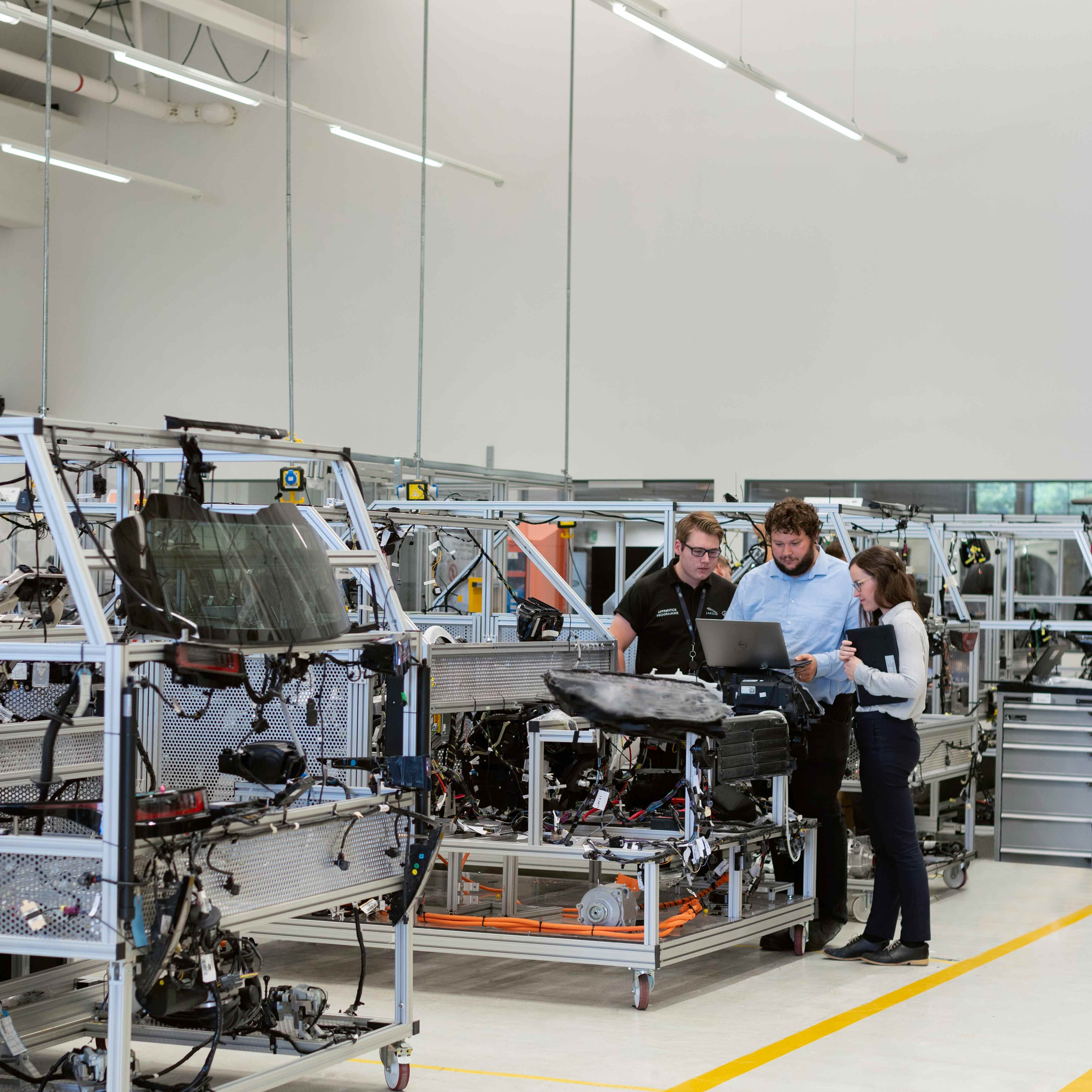
Despite all these challenges the manufacturing industry has managed to remain resolute; finding new ways to address sourcing bottlenecks, logistics backlogs and supply chain collapse. By creating resilience in their networks and apply new tools and approaches such as distributed manufacturing, manufacturers are turning critical risks into strategic advantage.
To find out more about the last few years of challenges, Helen spoke with engineers Nigel Pekenc and Professor Kostantinos Salonitis to get their views on emerging transformations and whats next for the manufacturing industry.

Nigel is a Partner in Kearney’s Strategic Operations Practice, based in London. He has advised clients in industries from engineered equipment to healthcare. Nigel has been focused on the reconfiguration of global value chains to meet changing needs as supply and demand shocks continue.

Kostas is Head of the Sustainable Manufacturing Systems Centre and the Deputy Director of Manufacturing at Cranfield University. He is a Fellow of the IMechE and chair of Manufacturing Industries Division. His current research focus is on the sustainability of manufacturing systems and processes, the design and optimization of manufacturing systems, and the use of lean and green approaches for managing manufacturing.
We would love to hear your thoughts and comments on this episode. If you would like to get in touch, email us at podcast@imeche.org
You can find more information about the work of the IMechE at www.imeche.org

